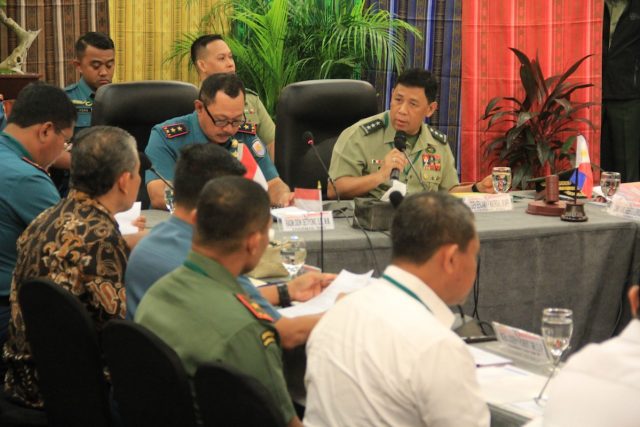
MANILA – Philippine and Indonesian officials on Tuesday wrapped up two days of meetings on border and maritime cooperation, agreeing on measures to boost the two ASEAN nations’ security, protect their fishermen as well as their nationals in transit, and fight terrorism and transnational crime.
The 36th Republic of the Philippines-Republic of Indonesia Border Committee Chairmen’s Conference was hosted by the Philippine Government through the Eastern Mindanao Command of the Armed Forces of the Philippines at the SMX Convention Center, SM Lanang Premier Mall, Davao City.
Both the Philippine and Indonesian Committees deliberated on matters of common concern and interest to both countries, according to a press statement issued at the end of the two-day conference.
Part of the outcome of their meetings was the enforcement of a directive by President Rodrigo Roa Duterte, as a result of his own meeting with Indonesian Foreign Minister Retno Marsudi in Davao last week, to boost coordinated patrols between the two founding members of ASEAN.
The Committees “agreed to intensify the conduct of Coordinated Patrol operations that will seek to ensure security and maritime control in our common borders,” and to “prevent the utilization of our respective territorial waters as an avenue for the proliferation of terrorism and other transnational crimes.”
The Committees also agreed to look into measures “to ensure the safe passage of our respective nationals, to include fisher folks, in the border areas.” This, officials explained, will help uplift “the economic well being of our respective countrymen while assuring their protection enroute to the fishing grounds at high seas.”
As both Indonesia and the Philippines are archipelagos with porous shorelines, both Committees also looked into the possibility of increasing the number of Border Crossing Stations (BCS) to be strategically situated at common border areas and to strengthen the operational functions of the existing BCSs. “This effort will provide a systematic scheme in closely monitoring the entry and exit of the nationals of both countries with the hands-on involvement of each country’s immigration, quarantine and customs bureaus,” the joint press statement of the committees added.
The Committees also decided to include other concerned military units and government agencies in the Border Committees, and set up “a definitive hotline between our naval commanders in order to immediately address developing situations and other challenges of the current time.”
Both Committees revealed their plan to “jumpstart the review of the 1975 Border Patrol and Border Crossing Agreements that will seek to recommend amendments of its provisions in order to improve maritime security cooperation between our countries.”
Lt. Gen. Benjamin Madrigal Jr. of the Eastern Mindanao Command and Rear Admiral Didik Setiyono of the Indonesian Navy signed the joint statement concluding the conference.
